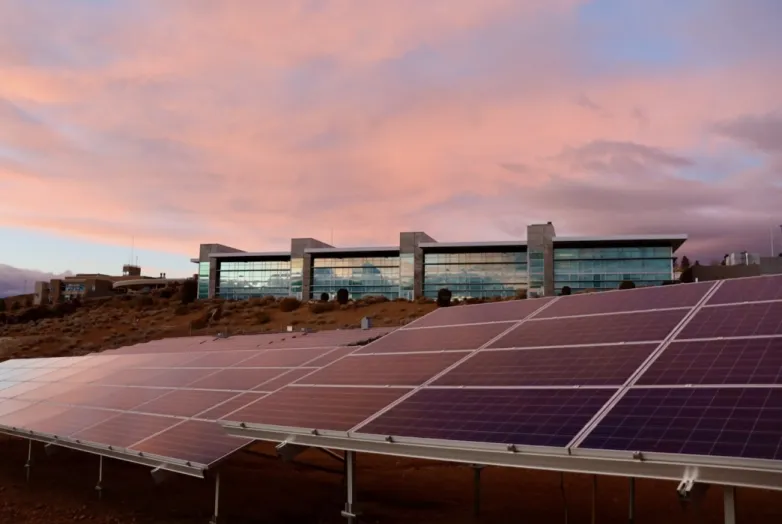How Do Students Study Solar Energy Technologies Nowadays?

Solar technology has taken center stage in many educational programs as the world approaches renewable energy. Today's students engage with solar energy technologies through innovative, hands-on, and multidisciplinary approaches. These methods equip them with practical skills and prepare them for a future where sustainable energy solutions are paramount. This article explores how students study solar energy technologies, highlighting the tools, settings, and applications that make their learning practical and relevant.
Academic Courses and Specializations
Specialized academic courses have become the cornerstone of learning about solar energy technologies in universities and colleges. These courses often form part of broader renewable energy or environmental engineering programs.
-
Curriculum Integration: Courses on sustainable energy, photovoltaics, and environmental science integrate solar energy topics into the curriculum.
-
Hands-On Laboratories: Students gain practical experience working with solar panels and related technologies in lab settings.
-
Capstone Projects: Many programs require students to complete projects that involve designing or improving solar energy systems.
-
Certification Programs: Some institutions offer certification in solar energy technologies, which helps students prepare for careers in the field.
In the evolving field of solar energy technologies, students are increasingly turning to innovative educational resources to enhance their learning. Alongside traditional and modern study methods, many rely on academic writing services to keep up with demanding coursework. If you wonder, “Who can write an essay for me?” these services can assist with complex research papers, case studies, and various assignments. By entrusting some of their academic workload to expert writers, students can devote more time to hands-on projects and laboratory work, deepening their understanding of solar technologies and preparing for a future in this crucial industry.
Online Learning Platforms and Simulations
The rise of digital education tools has also significantly impacted how students study solar energy technologies. Online courses and simulations provide flexibility and accessibility, allowing students worldwide to explore this field without needing physical lab equipment.
-
Massive Open Online Courses (MOOCs): Platforms like Coursera and edX offer courses developed by leading universities in solar technology.
-
Interactive Simulations: Tools like PVsyst and SAM (System Advisor Model) let students simulate solar energy systems and assess their performance under different conditions.
-
Webinars and Workshops: Industry professionals frequently conduct online sessions on the latest developments in solar technologies.
-
Virtual Reality (VR) Experiences: Some advanced programs use VR to immerse students in virtual environments where they can install and manage solar panels.
These digital platforms not only make learning about solar energy more accessible but also enhance understanding through interactive and immersive experiences.
Internships and Field Experiences
Internships and other field experiences are vital for students focusing on solar energy technologies. These immersive opportunities offer students a firsthand look at how theoretical knowledge is applied in professional environments, directly connecting them with leading companies and cutting-edge projects within the solar industry.
-
Real-World Applications: By participating in internships, students see firsthand how solar technologies are implemented, from small residential systems to expansive commercial solar farms. This direct exposure helps them understand the challenges and solutions in solar installations and maintenance, providing a practical context to their academic studies.
-
Professional Networking: Internships serve as a crucial platform for building professional relationships. Students meet mentors, future colleagues, and industry leaders, opening doors to job opportunities and career advancement. These connections are often instrumental in securing employment after graduation.
-
Skill Development: Field experiences allow students to apply their classroom knowledge in real-world settings, honing their technical abilities while enhancing vital soft skills such as project management, teamwork, and problem-solving. These skills are essential for any successful career in the rapidly evolving solar industry.
-
Innovation Exposure: Students frequently encounter the latest technologies and innovative practices that have yet to become mainstream. This exposure to state-of-the-art technologies and methods inspires creativity and innovation, empowering students to contribute to advancements in the field.
Such experiences are invaluable, providing students with a comprehensive view of the solar energy landscape and practical skills crucial for their professional growth.
Research and Development (R&D) Projects
Students can also learn about solar energy technologies by participating in research and development projects. Universities often collaborate with businesses and government bodies to offer students roles in research initiatives.
-
Advanced Technology Exposure: Students get to work with the latest technologies in solar energy, exploring new materials and efficiency-enhancing techniques.
-
Mentorship by Experts: Working alongside professors and industry experts, students gain insights unavailable through traditional coursework.
-
Contribution to Sustainability: These projects often aim to solve real-world problems, contributing directly to the sustainability goals of communities or industries.
-
Publications and Conferences: Successful research projects can lead to publications in scientific journals and presentations at international conferences, significantly boosting a student's professional profile.
Engaging in R&D projects helps students make substantial contributions to the field of solar energy, enhancing their resumes and preparing them for high-impact careers in this vital industry.
Looking Ahead
Today's methods of learning solar energy technologies reflect a dynamic and integrated approach to education. From in-depth academic courses to innovative online resources, practical field experiences, and cutting-edge research projects, students are equipped to understand and advance the solar energy field. This comprehensive educational framework is essential for preparing the next generation of experts who will continue to develop and expand the use of sustainable solar technologies globally.
Also read
- Home EV Charging Stations in Ireland: How Much Can You Really Save?
- Automated File Conversion Services: Transform Documents Without Manual Work
- The Rapid Evolution of Direct Current Fast Charging for Electric Vehicle Fleets
- Scaling Data-Driven Campaigns Without Breaking Your Stack
- The 12th World Sustainability Forum (WSF-12)

